By Ron Melchiore
Good day to all! I contributed an article last year to this site and had a wonderful response from everybody. Our host Claude asked me awhile ago if I would consider writing another article. I was definitely interested but we were just making the big move from the wilderness of northern Saskatchewan to a brand new homestead on the Nova Scotia coast and I’ve been maxed out trying to clear land and build our home.
Claude came up with a great topic. “5 problems I encountered when I went off the grid.” Problems and their solutions when going off grid could fill a book but I have 5 I can share with you. Hopefully my experiences will help you if you have or are contemplating a more self-reliant lifestyle, especially if it is an off the grid choice. I also hope you can take heart in the fact that all obstacles can be overcome. These were all problems with answers.
First a little background. For those who don’t know me, I’m one of the back to the land people from the late 1970’s. I’ve been off grid for 38 years. It’s a way of life for us. I wrote a book titled Off Grid and Free: My Path to the Wilderness where I chronicle some of my off grid experiences. I started out homesteading in northern Maine. It was during those years that I met my wife Johanna. Maine was a wonderful 20 year learning experience. It gave us a great deal of confidence enabling us to move on to the next chapter in our lives.
That chapter was to live on a remote, isolated lake in northern Saskatchewan. Imagine living so remote, a float plane is required to find you. That’s pretty remote! We went shopping twice a year, picked up mail twice a year and as a general rule, didn’t see another human for 6 months at a time. And we flourished. What a privilege it was to call the wilderness home for 17 years.
We’ve made the move to the Nova Scotia coast line where we are currently building our last homestead. So you might say we have a lot of experience. But we’ve also made our share of mistakes along the way. Here are 5 errors, mistakes, misjudgments I made when I initially went off grid so many years ago.
During high school, I studied electronics as my career choice and once out of school, went right to work. After a few years of the 9 to 5 rat race, I figured there had to be something more to life than working it away. I was lamenting that fact to my work supervisor one day when he suggested homesteading. I had never heard of the term but it sounded good and after some research, I latched on to the idea.
I was young, in my early 20’s and pretty naive. It was easy to fantasize about living in a little cabin in the woods with a small garden, a few solar panels for power, and just kick back and relax my way through life. I figured I could save my money from my job, buy a property, build my homestead and essentially retire.
That was my first mistake. It doesn’t work like that. And it never will. Unless someone has left you a pile of money, there is a need for some income. There are always costs to living. One can mitigate to a large degree those costs but some money coming in is essential. One can barter, swap labor with others and do some creative financial rearranging, but there are always things that require cash.
I quickly realized I would need some income to buy gas, pay taxes, vehicle registration, insurance etc. The money I saved up was not near enough. I am a frugal guy and can live cheaply, but I realized I needed some way to make money. The odd job helped but ultimately, a knock at my door by a local logger interested in cutting my woodlot got me to thinking I could garner income for our self-reliant lifestyle from the land by becoming a logger. I selectively harvested our property over the years and ultimately received several “County Outstanding Tree Farm” awards for the effort. So we took full advantage of our particular situation.
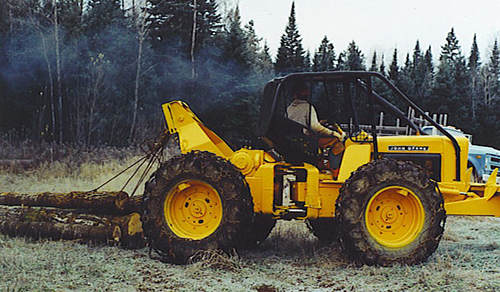
We made money from our homestead and improved our property at the same time.
I’m a workaholic and once I set my mind to something, I’m driven. I don’t mind the hard work. But my second mistake was misjudging how much work was involved in building a small home, plowing and discing a field and garden, canning and preserving the food, building a barn, tending the animals, fixing stuff that always broke, cutting and lugging firewood, pumping water by hand into buckets then carrying them into the house and the list goes on. It was a lot of work but I relished it. At the time everything was new and exciting and I fully immersed myself in my new lifestyle. Every night I went to bed absolutely exhausted from working hard from sun up to sun down but I went to bed so satisfied with the daily effort and life choice I had made.
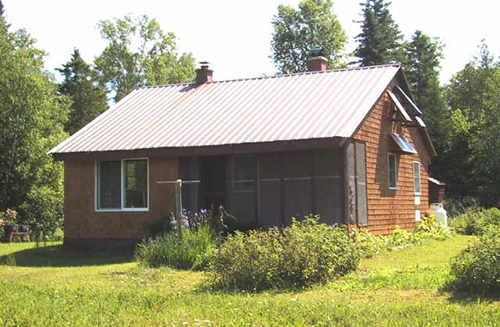
But the life of kicking back, throwing a few garden seed in the ground and having a life of ease was unrealistic. Just know that work is involved in becoming as self-reliant as possible and if you aren’t prepared for the work, you might easily become disillusioned with the notion of homesteading.
The third error I made was not realizing how much I needed to learn about this new lifestyle and how little I knew. I came from the suburbs of Philadelphia, had a career in electronics yet I chose a completely foreign set of surroundings. Dirt road in to my homestead which was surrounded by forest, and all of this was in a country setting. It was a different world than what I was accustomed to. Gardening, animal husbandry, chainsaws and firewood… wow, this was all new and I was clueless. I bought books, studied, talked to local people more knowledgeable than I, and then I gave it a try.
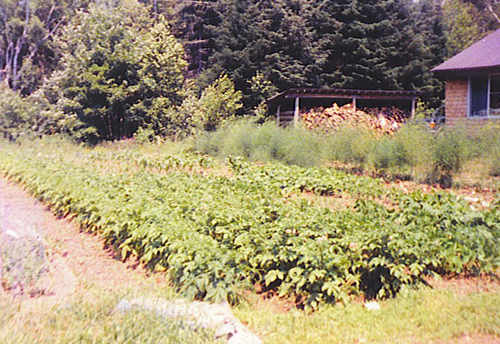
After I tried something new and got some confidence, I was easily able to add to the mix by trying something else that was completely foreign to me. I learned by book reading, using my common sense and by trial and error. I learned from my mistakes and moved on.
Common sense is vital to learning and adapting. I wasn’t attempting to build and launch a rocket. I was merely trying to master some simple, basic skills that were known to previous generations but over time, as mechanization and commercialization became the norm, became lost as people no longer relied on themselves as much as they used to. An example of this is preparing and planting a garden. Most people figure why bother when it’s so much easier to go to the grocery store.
Another misjudgment was estimating my power needs and how to fulfill them. I was an electronics technician quite familiar with wiring, ohms law and the use of multimeters. And yet I had no practical experience with how much power a few lights, a car radio and tiny TV would take. Although I knew car batteries were a bad choice, money was a limiting factor in getting the right parts for my energy system. So I rigged up a half baked power system that was next to useless which relied on a car battery as my energy storage. It was forever in the hole and was rarely fully charged.
But it was a tremendous learning experience and I quickly learned what power my gizmos consumed and what a battery and a solar panel were capable of doing. Not until I purchased the proper components, hooked them up and used them for a period of time at my locality, did I really understand what it took to build a real power system. “At my locality” is important. Location is a paramount consideration in how many panels and batteries are needed to power any home on a daily basis. My dink system might have worked much better in a sunnier climate.
The last miscalculation that I made ( don’t be misled… there are many more errors and mistakes I made) was my choice of access to my homestead. I purchased a 120 acre woodlot and as it happens , there was an old potato field of perhaps 4 acres right in the middle of it. Perfect! Except in the winter. The driveway was 4/10 of a mile long. And the homestead was in northern Maine which gets an average of 120 inches (10 feet) of snow a year.
Related:The Best 5 States for Living Off-Grid
In those early years, there was no way I was able to drive into the homestead once the snow started flying. Years later when I began selective logging our property and had a highway plow connected to an old skidder, was I able to plow us out. But for many years, I had to park the vehicle at the head of the driveway from November until May when I was able to drive back in. That meant dead batteries, food, animal food and all supplies were lugged in and out by pack mule. And sadly, I was the pack mule. But it kept me in top shape snowshoeing all that stuff back and forth to the car. I learned what the term “long winter” meant.
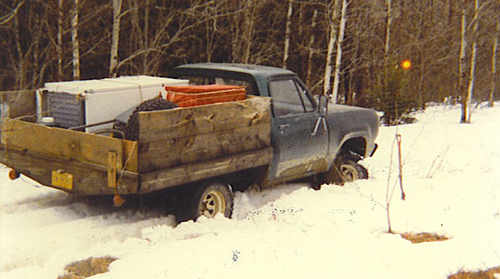
So don’t overlook the obvious. You might find the greatest place on earth in the summer but come winter, access becomes a long slog. Not a big deal as long as one is aware and prepared to deal with it. Keep in mind not only is there an inconvenience in that situation, but safety is a factor as well. If a medical emergency or house fire were to occur, inaccessibility presents some real challenges to those trying to come to your aid.
So there you have it. Five things that I would consider errors, mistakes and misjudgments on my part in those early years shortly after I made the big decision to change direction and seek a self-reliant way of life. Even with the mistakes and frustration of dealing with them, I wouldn’t change a thing. I learned a great deal and one of the big things I learned is that I can truly count on myself to get things done. I am definitely as self-reliant as is practical and that’s a good feeling.
Please feel free to ask questions. I enjoy exchanging ideas and banter back and forth so don’t be shy. The whole point of this website is so we can share and learn together.
Editor’s Note:
Please feel free to ask Ron (in the comment area) any particular questions you have about going off the grid.
Ron and his wife spent 17 wonderful years living 100 miles in the Canadian wilderness on a remote lake. They are now building a new homestead on the Nova Scotia coast. As part of the back to the land movement that originated in the 70’s, they have spent their adult years living the homestead dream. Ron’s book Off Grid and Free: My Path to the Wilderness is available in print, kindle and audio on Amazon and Barnes & Noble. You can follow and contact Ron at his website: In The Wilderness , on his Facebook Page or on his Youtube Channel
You may also like:
 Confessions Of A Man Who Lived 37 Years Off Grid (AMA)
Confessions Of A Man Who Lived 37 Years Off Grid (AMA)
All the Edible and Medicinal Plants in North America (Video)
How To Make Money Off Grid: Making A Living From Your Homestead

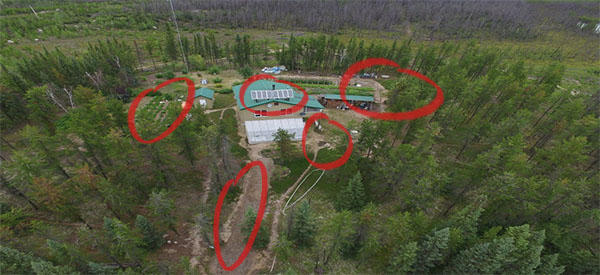
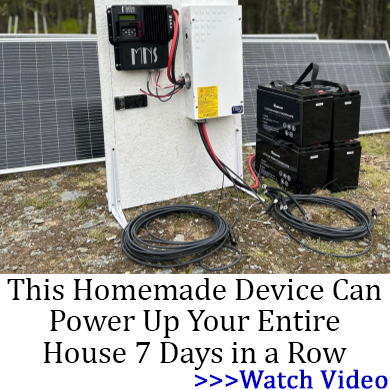
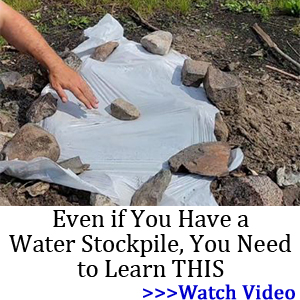
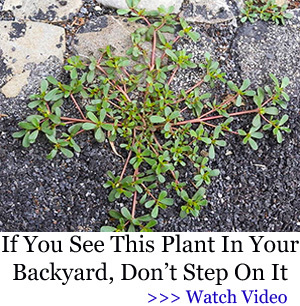





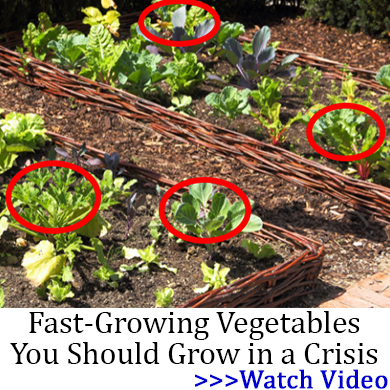
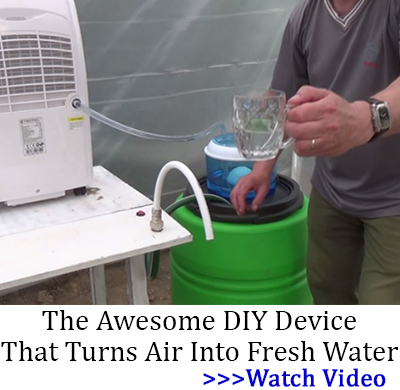
Two questions.
1. How do you fend off animals like bears and wolves?
2. How do you preserve your food for winter?
Good Morning Donovan. Thank you for stopping in with your questions. Both are excellent questions.
In regards to wolves and bears… We were not bothered by wolves and we had very little worry about them. We did have some visits by a wolf pack by they were more curious than anything and we did not feel threatened by them.
Bear is a different story. I’ve only dealt with black bear. In Maine, northern Saskatchewan and Nova Scotia.I was extremely lucky to have been touched by a black bear while I slept and survived fine which is a story all by itself. That story is a chapter in my biook titled “Smells Like Chicken”
We have had a great deal of damage to our snowmobile, greenhouse etc and they were a real problem. Especially the bear that was quite intent on climbing in through the bedroom window to get to us around midnight one summer night. There was nothing we could do to dissuade him from trying to get in through the window.
The first order of business in dealing with any wild animal is to be cautious and respect them. The second priority is to not invite them in. Meaning keep all food scraps, smells to an absolute minimum. Have a place set up far from your home if you are going to clean fish for example. We also had a small area farther down the lake where we took food stuffs that would not compost well like bones and corn cobs.
If we went berry picking in the fall or went for a hike, we’d always yell out occasionally to give any bear in the area a heads up. And finally, we had a shotgun and bear spray if we needed to do any bear persuading to leave us alone.
In regards to food storage for winter, you name it, we’ve probably tried it. We certainly have fully stocked shelves of canned food from the garden.orchard and butchering. We also freeze a great deal of meat, vegetables and fruit.
In years past, before we had a chest freezer, we took advantage of the cold winter temperatures by storing meat in a rugged ice chest or metal trash can outside.
Of course, we always had a root cellar to store our root crops, eggs and miscellaneous food stuffs.
And finally, we have done all our own slaughtering and butchering so we cure hams and bacon and then smoke them. We make various sausages and then when all is done, we take the fat to make soap.
I hope that helps. Thanks Donovan. All the best! Ron
Any bear trying to break into my hooch becomes dinner…for a long time.
A GUN FOR GOD”S SAKE.
No substitute for experience and you sure had plenty. You have shied away from the true boogey-man of prepping/off grid living and that’s medical. Emergency rooms are ‘free to all’ but darken their doorstep with no coverage and they will limit what they do for you.
How about kids? Did you raise children away from civilization? That would be a heck of a ‘learning curve’.
Hello Gegner. No kids. I like to say that’s been the secret to our success. 🙂 But seriously, it would have been far harder to live in the bush like we did. I’ve been blessed to have done some wonderful things in life such as winter thru hike the Appalachian Trail and bicycle across the United States. Things like that would have been pretty tough if we had kids. This lifestyle gives us the freedom to do things like that.
Medical is a great point. We are responsible for ourselves. To that end, I took an EMT (emergency medical technician) course many years ago, recently took a 2 week first responders course and we both have basic first aid and CPR.
As well, we have a pretty comprehensive medical kit complete with prescription meds. We had an excellent rapport with our dentist and doctor so that if I needed advice, I could always make a SAT or VOIP call.
No medical/emergency kit and knowledge is complete without an overall game plan which includes how to communicate in an emergency to the medical community as well as transportation. When we lived in the bush, we made sure fire personnel had our location pinned on their maps. We made sure we maintained a chopper pad just in case we needed a medvac or fire personnel needed to land in a hurry.
Just a bit of feedback on your comment. Thanks for dropping in. Take care! Ron
What an awesome life you’ve had! Kudos and God bless!
Thank you so much Susan! It has been an awesome adventure. All the best! Ron
Thanks for the common sense tips…not so common these days
Hi Raven. You are welcome. It does seem that common sense is rather uncommon these days. Thank you for the comment. Ron
What about water? I lived off grid for about 5 years and it was a problem until I drove my own well down some 90 ft. If you use lake or stream water how do you sterilise it for drinking/ cooking?
Hi Mike,
Excellent questions. In Maine, I had a drilled well with a deep water hand pump out front of the house. But because the water table was relatively shallow, I was also able to install a shallow well pitcher pump at the kitchen sink.
In northern Saskatchewan, we started out drawing water from the lake. Although it was a clear, cold water lake, there was no way we would take a chance on drinking water without treatment of some sort, especially given the fact we lived so remote.
So the water that was drawn from the lake was sucked up to the house via a shallow well piston pump. When it came out of the pressure tank, I had a 5 micron filter on the water supply going to the house to catch the large stuff.
At the kitchen sink, I installed a 1 micron filter unit for our drinking and kitchen needs,. Ultimately, Johanna and I hand dug a well which made our water supply much safer but we still kept the filtration units in place.
Here in Nova Scotia, our well was dug by an excavator and well crocks were installed. It was all properly disinfected and the water was tested by the Province. It is pure and potable but we will still put the 5 micron filter on the house supply.
I do have more information on our various water supply choices on my website if interested. Great questions. Thanks Mike. Have a nice day. Ron
I have a Berkley which will purify stream or lake water, look them up online. I also have a Survival Still which distills water. So if you are not feeling confident enough about your purified water, you can distill it. The Survival Still will also work for ocean water. The Berkey requires no electricity. You must bring the water for the Survival Still to a boil so it can distill from the steam, but it can be on anything that cooks, as long as you keep the whole thing level. That should take care of the water part as long as you have access to any kind of water.
Hello Artist-Writer,
The Berkley looks like a very nice unit and I thank you for your input. There are lots of commercial and low tech approaches to water purification and it never hurts to have a couple of game plans.
In our particular situation for our homestead use, having a known, fully tested, pure water source that has some pressure behind it from a faucet is the best solution. Washing and rinsing lettuce for example under a nice clean flow of water in summer.
But, as you suggest, if someone doesn’t have the confidence in their water supply for whatever reason, something like the Berkley looks like it would be a good second choice. .
Thank you for stopping in with your comment. Have a great weekend! Ron
Dear Ron,what great article I learned in 5 minutes things I been tryin learn in 60 yrs precise n to the point this should be taught to everyone Thanx SG THeohary
You are more than welcome shvhd. I am so grateful you found the information of value. Thank you so much for the kind comment. All the best, Ron
Hi Ron, from your experiences that you have had, I would like to know the things you have implemented in your new place that you were without before. Have you made any big changes in the way you homestead now because of age or health?
Hello Sherry. What a great question! Thanks for stopping in.
It was a huge transition for us when we went from Maine to the Saskatchewan wilderness. The difference between the 2 homesteads was night and day really.
Our experience in Maine was big time spartan but it was a tremendous learning experience and confidence builder. Saskatchewan was far more deluxe and we essentially had everything we wanted within reason out there.
Nova Scotia will still be somewhat deluxe. Age has not slowed us down at all yet so I can’t say we’ve made any major changes.
But there are 2 changes we’ve made that come to mind. The house in SK was 2 story. Our new house we are currently building is a single story. We are also taking advantage of the drop in price of solar panels. When we moved to SK, solar panels were roughly $5/watt. Now they are under $1 so we’ve increased the size of our solar array substantially.
And of course, we no longer have to rely on a float plane to fetch us. We can drive into our homestead again which is nice.
Thanks Sherry! Take good care, Ron
By my calculations you are now in your late 50s or early 60s. You are reaching an age where health problems will start to rear their ugly head. Did you pay into the Canadian health system during your years in Canada? If not, I assume that you have a plan for possible extensive health problems? How close are you to a hospital? A helicopter ride is expensive no matter how short.
Hi Chuck. We pay taxes to both the US and Canada when we were employed. So yes, we’ve paid into the system via taxes. In Canada,weI worked the occasional odd job in the bush in the mineral exploration field. To live in the bush and be able to find a job in the bush was very fortunate.
We have coverage under the Canadian Health care system.
When we lived in the bush of northern Saskatchewan, we were a 50 minute flight by float plane or helicopter to the closest hospital. Here in Nova Scotia, we are roughly an hours drive from the hospital.
Thanks for the questions. All the best,
Ron
Canada doesn’t have a ‘single-payer health care system’ per se. Each province has its own socialist-medicine, pension, and welfare systems.
Ontario system is called OHIP; people pay different premiums depending on household composition. Costs are also subsidized & masked via high income taxes and VATs.
One supposes that SK payments get credited by the NS system. (There’s a Canada-wide CPP (pension plan) which provinces ‘top up’ for COLA purposes, based on various criterion.) Socialism usually very complicated, and nigh always there’s much intra-governmental corruption.
Until ObamaCare, US health costs were mostly funded via private insurance or direct payments from patients. Except for Oregon, and perhaps a few other states, everything likely to revert to private carriers.
IRS punishment got revoked, so insurance pools are likely composed by older and sicker folk. SCOTUS had to twist itself into knots to ‘approve’ ObamaCare, Single-payer federal health-care funding is unConstitutional failing an amendment.
We live on 5 acres near town. Have solar panels and want to go off grid. What suggestions do you have for the batteries?
Hello Velcro. That’s a harder question to answer than it seems. I don’t know the size of your panels but essentially you want your battery bank to match your solar panel output. As well, you need to figure out how many days of reserve you’d like before you have to get serious on charging the batteries back up.
But here are few tips. Lead acid is still the best bang for the buck. I would not go with anything other than deep cycle batteries. Depending on the size of your system and money supply, you can buy batteries in different voltages but I favor a 2 volt cell. They are large and heavy but will last a long time.
You may be able to find some used batteries from a phone company or such used for emergency backup. They replace batteries occasionally and you can get a good deal.
I am trying a new battery called a TAB which I purchased through a Canadian dealer. I believe TAB is the manufacturer from Europe and they are a tubular design. https://www.cdnrg.com/locations/branches/vancouver The jury is still out but I am pleased with these batteries thus far.
I got 17 years out of our old batteries in Saskatchewan (which were not TAB) by treating them well. When we left the house, they were still in great shape with many more years left in them. I shallow discharged them no more than 20% before recharging and I made sure the tops were always cleaned of sulfates. And of course, an equalization charge when needed kept the batteries prime. Make sure to use distilled water when topping them off.
I hope that helps you. Good luck and thanks for the question. Ron
Where did you live in Northern Maine?
Hi Larry. We lived between Houlton and Presque Isle. Small town called Bridgewater. Take care, Ron
Thanks for sharing the great information that no doubt will be useful to a lot of people! We have a small cabin at our farm, and have been carrying a gas generator up there when we spend the night or weekend there. I hate how noisy and smelly they are. I recently bought a 100 watt solar panel kit that includes a charge controller and two solar LED lights that plug into it. The controller also has a USB port.
Trouble is, I want to get a battery for the panels to charge so that we can have power at night. We will only be using it mostly for light, maybe a small fan and perhaps charging cell phones or a laptop occaisionally. What kind of battery would you suggest? Deep cycle marine? I’d like to have some idea before spending money on an expensive battery that is not the best for what we need. I’ve looked at article after article on the web, but they didn’t tell me much. I would also like to get an inverter in case we need to plug in a small AC appliance once in a while. Thanks in advance for any suggestions!
You are more than welcome Fizzlecat. Thanks for the kind comments and your good questions.
Please see one of the above posts and my comment back in regards to batteries.
Over my lifetime, I’ve used car batteries and then upgraded to marine deep cycle batteries. But marine deep cycle batteries are not a good choice either. They are made for running trolling motors and their interior construction is still inadequate for a real deep cycle use.
It really depends on how often you go to your camp. I have no experience with the golf cart batteries nor have any idea of the cost but perhaps a few L-16’s might do the trick.
The marine battery might get you by for a few years to get some experience as long as they can be charged up frequently. It sounds like you use your camp on weekends so as long as the battery charges fully during the week, that might be fine. If you can afford it, I would still consider a true deep cycle battery since the lead plates are heavily constructed and are made for true deep cycling.
As far as inverters, I’ve used small portable inverters as well as the large sine wave and modified sine wave gizmos. If you only want to use a hand mixer or similar, I’ve used a handy 200 watt portable inverter for that purpose. It actually had a cigarette lighter end on so I had the Maine house wired with the proper 12 VDC receptacle and Johanna would just plug her inverter in when she needed to run the mixer.
I’m not sure what appliances you had in mind so if you want to further discuss, please drop me another note. You essentially need to figure out the power consumed by your gadgets and then make sure the inverter is capable of supplying the power. Don’t forget to add the power together if you plan on using a light and the mixer at the same time. The inverter needs to be able to supply power to whatever loads you present it.
All the best fizzlecat! Ron
Thank you, Ron! I do appreciate your suggestions about this, I’m sorry but when I posted directly from the article, that post wasn’t there yet. I copy and pasted your suggestions to that reader too! When I posted my question, the other responses popped up!
I’m not really sure which appliances we’d use up there, I could see an occaisional power tool, but most of ours are rechargeable, and sometimes it’s months between times that we stay at the cabin, so not sure the marine deep cycle would work in that case. That is my main source of confusion I guess… how to keep the battery going strong if it is only used occaisionally, and the right size to get. I plan on taking the solar panels down when we are not up there, as we have had uninvited “guests” there before!
I’ve read that it’s best to get a pure sine wave inverter, as some electronics don’t fare well with the modified sine waves.
Hi Fizzlecat.
I understand how daunting it can be to figure all this stuff out. So let’s try to figure it out together.
Cordless power tools are likely no problem to recharge with a small off grid system and a small inverter. But a larger power tool such as a circular saw draws quite a bit of power so any inverter will need to be able to handle that load. So for example, forget that small 200 watt inverter with the cigarette lighter for a connector. No way will it handle a power saw.
You have the added complication of not being able to keep solar panels at your cabin. My suggestion about showing up on the weekend and utilizing your power system was based on the thought the solar panels would be around to trickle charge the batteries through the week.
Here’s the dilemma. You want to buy batteries and leave them at your cabin. You occasionally want to visit the cabin and use those batteries. It’s not good to leave the batteries discharged for long periods without being charged up. You need some way to charge those batteries while you are away or lug them out with you so you can recharge them elsewhere.
You don’t want to come back to your cabin a week or months later to discharged batteries. You won’t always be able to count on hooking the solar panels up upon your arrival and fully recharging the batteries. Plus you know it will probably rain that weekend. 🙂
It defeats the purpose of an off grid system if you have to fire up the generator every time you go to the cabin just to charge the batteries.
Is there a place you can mount the solar panels that will make it harder for visitors to remove? What are the specs on your solar panels? How big are they in watts and are they connected in series or parallel? What is the total array wattage in other words?
We have a sine wave inverter now but the previous 37 years were with a modified sine.inverter and only once did I have a problem with a laptop computer that sometimes didn’t want to charge. If you can afford a sinewave inverter, then by all means go for the sine wave. Then you should have no worries powering stuff. Price has come down a lot on them so they are more affordable.
I hope that helps a little. Ron
Would love to know more about where on the Nova Scotia coast you are, and what went into making that decision. I have been eyeing that area for a few years, and would love another person’s perspective!
Hello Holly.
We are in Guysborough County right on the ocean. Some of the factors that went into our decision were the cost of land, land we could still grow a garden and orchard and a property with a southern exposure where we can still tap into the sun for solar power. If need be, we can also incorporate another wind turbine as well.
Another factor was proximity to neighbors. We are not anti social but we do enjoy our privacy and the sense of seclusion. There are still reasonably priced chunks of land that afford that desire to be away from it all yet are still close to amenities when needed.
Thanks Holly for the question. Take care! Ron
Hi, I really am enjoying reading about your experiences, this was something I wanted to do almost 50 years ago, but then kids came and I settled into the typical factory work. My question is regarding a solar array, I have geothermal heat, solar companies contact me but want to put the panels on the roof. I really don’t want anything up there and would rather a solar array in the back lot. I use a maximum of 900 kw a month in Dec, Jan, and Feb. Any thoughts?
Hi Dan,
Thanks for the kind comment and question. In regards to the location of solar panels, any location you choose needs to have as much of the available sunlight in the day to fully utilize them. In other words, if you stick them behind the house where they are shaded during the day, this will greatly diminish the power output.
Same applies if you are in a forested area that will shadow the panels. So my suggestion is to ascertain if you have a suitable ground location for an array. Then you have a choice of tracking or non tracking.
Any array needs to be suitable for your location. For example, we ordered a rack that would withstand hurricane winds. Make sure the rack will withstand the loads in your area. As well, make sure the solar panels mounted on the rack are above weeds and anticipated snows depths. Those snow depths will be exacerbated by snow sliding down and off the panels.
Having the roof mounted array has its advantages but one big disadvantage is having to go on the roof to clean the panels if they’re covered by snow. In the wilderness of SK, we had a metal roof with our array on that metal roof. Every snow storm, I had to go up and clean them off with a brush or the snow would linger a long time with the result being we had no power output. So keep that in mind if you are in snow country.
Safety was paramount being in the wilderness so I had a wooden ladder attached to the roof and I roped myself in to an anchor point on the rooftop.
I’m sorry I’m unable to relate to 900 KW/month. I’ve never had a power bill. I’ve heard of them but I don’t know what one is. 🙂
All the best Dan! Ron
I grew up without electricity, plumbing, phone, etc.
We had a well that my dad and his brothers dug. We had a hand pump, which froze up every winter night, so we had to remember to keep a container of water, which we could thaw on the kitchen stove, to heat up and prime the pump.
No indoor bathroom, no lights (kerosene lamps), no tv, my dad hooked up a radio to a car battery every night to listen to the news.
Harsh living I must say, and my parents had 7 kids.
They knew all the methods to make poultices, and to treat most illnesses. I remember sitting under a quilt “tent” in the kitchen with steaming water, in which hackmatack was boiled to help with our “croup”
I am glad I live on the outskirts of a city now!!!
Hello A.
That’s how we lived in Maine for 20 years. And although it was an invaluable education, we are happy we upgraded to some of the modern amenities these days.
But if the world were to fall apart, we certainly have the experience and knowledge to go back to that way of living. And you could too!
Thanks for your feedback! Ron
Hello Ron,
I really enjoy and appreciate all your tips. I am looking into and have been gathering a lot of documentation so I can hopefully do things right when I make the leap into the woods to live off grid. I keep hearing about homesteading so could you give me any tips on getting started? I have looked at the mid-west, Alaska and all the other possibilities out there. What’s the best way to get a good piece of land that isn’t out of this world in the cost per acreage? I have even looked at Maine as a possibility because of the cost of the land. I am a handicapped Soldier that has had all my surgeries from my service to the US. I am finally able to lift an axe and go for it. I would appreciate any advice you can give me.
Hello Ray,
First, thank you very much for your military service! And thank you for the kind comments and questions.
In regards to finding a suitable piece of land, I would suggest creating a list of the things you are looking for in your perfect property. If you want to have a woodstove and cut your own firewood from your property for example, you can eliminate the desert .
Maine has some great real estate but I’m sure there are other States as well with affordable land. If you like snow, you can eliminate many States. You get the idea. Then once you have a few States that seem to have what you are looking for, I would do an internet search on property tax rates for the different Counties in the State and see if that whittles the choices down, Inquire on how stringent the building codes are and if they have any ordinances against things such as a small wind turbine or other prejudices against off gridders. Can you keep livestock if desired?
Then I would talk to real estate agents in the area. Perhaps even physically travel to the Sate to check it out to inquire of the locals.Before traveling, I would also utilize Google Earth. You can drop the little man down on the more traveled roads and get a real 360 view of any property you are considering. That sometimes doesn’t work in remote locations but it’s worth a try.
Good luck Ray! I wish you the best in your new endeavor. Ron
I had an idea while reading your article. Why not build a suspension walkway high enough to be above the snow? One could bore through the tree, insert a proper diameter metal pipe through it and then string strong cable through the pipe to make the support for the walkway? Maybe I should suggest the idea to Pete of “Treehouse Masters”. lol
I don’t know Victor. That sounds like a lot of work. I think I’d stick to being a pack mule. Ron
Quick question- I have often though of this and have never quite came up with a good answer so I’d like to ask you. What do you plan to do once you reach an age that you can no longer perform the labor-intensive tasks required to live an off-grid lifestyle? Thanks!
Hello JD,
Thanks for the thoughtful question. Depending on who expires first, the plan is for the survivor to head to the showroom for a “newer model”. The newer model will be able to carry on with the daily tasks.
In the event we both just grind on into old age, we have mitigated a lot of the hard tasks while we still have plenty of vim and vigor. In reality, once the homestead is set up, there isn’t a whole lot of labor intensive stuff to do.
Cutting and stacking firewood and tilling and planting the garden come to mind as being somewhat labor intensive. Currently, we each have our own tasks to perform. I cut and split the firewood and Johanna stacks it. I till the garden and Johann plants and tends it.
If as we age we need to team up to get a task done, we’ll do it. If we need to downsize, we’ll do that. If we need to hire someone local to do something we can’t do any longer, we’ll do that. We will adapt as the situation demands.
I have always had years worth of wood cut in advance and I will continue with that. We always have years worth of food canned and/or frozen. So if either of us has a bad spell, we are prepared for a rough period.
I have met plenty of 80 and 90 years old who are still active and were able to maintain a small garden and throw some things in the freezer. I would argue that the active lifestyle we have chosen also helps to keep us in healthy shape.
So in essence, we’ll cross that bridge when we get to it since life is too unpredictable and we figure there’s no sense worrying about getting so old we can’t function. We prepare as best as we can and let the chips fall where they fall.
Thanks JD. Take care! Ron
I appreciate your answer. Very interesting read. Take care!
There is a 90 year old woman in my area who still splits her own firewood.
Outstanding A! I love to hear those stories of people undaunted and still plugging along well into what is traditionally considered “old age” Thanks for sharing! Ron
Very interesting reading your answers. Having been raised urban, with some veg. garden skills, could can if it needed, but essentially “citified” , I applaud your all’s gumption and persistence in what is wilderness to us in the South. I know a lot of the power and backup methods can be used in the city, one must be clever in the construction. Keep up the good work and will follow your post. Mara Sprott
Hello Mara. Thank you very much for your kind comments and feedback. You are absolutely right! Having basic knowledge on lots of topics is great but as long as one can be creative, that basic knowledge can go a long ways to solving some of the more complicated dilemmas.
I am far from being the brightest light bulb in the room but I do excel at problem solving and being able to be creative in making something work.
Thanks for following along. Have a nice weekend Mara. Ron
Hello Ron, great article especially for those just getting into homesteading as we are. We only have one acre in Vail,AZ with a manufactured home on a community well.The summer is the hardest time of year around here since the temps reach 120 outside. We have started storing water in food grade 55 gallon barells.Drilling a well on our acre is not realistic due to county regs and cost. Gardening is possible but requires LOTS of digging through the rocky hard soil. Adding a soil builder such as BUMPER CROP is a must. Also sun shade cloth above the garden is needed to keep plants from burning. A small garden ends up being a big project. But with all of that I have good results come harvest time. Next we are looking into solar panels since we get about 300 days of sun a year. With the heat here having enough power available to run the a/c and refrigerator may not be possible. Any thoughts you have on homesteading in the AZ desert would be greatly appreciated. Thank you, Mike K.
I’m sure Ron has tons of good suggestions, but I recommend you check out Bill Mollison’s permaculture books, as well as Geoff Lawton’s website and YouTubes. There are some fantastic design ideas including vines to create shade and food at the same time, roof water catchment ideas, mulching, swales and more. He has a project in Jordan “Greening the Desert”. Worth a look-see.
Thank you Holly we will be sure to check those out. Sounds very interesting. Thank again,Mike
Thanks Holly for your excellent input! All the best, Ron
Hello Mike,
Thank you very much for the kind comments. I’m glad you are finding the information of value. You present an interesting problem and I’ll be right up front with you. We have no experience with desert gardening. I would definitely take Holly’s suggestion of researching the topic on the internet. But I will talk out loud so to speak and offer some thoughts. And some of these thoughts may not be legal in some localities. Such as building a water cistern. Can you collect rain water in a large cistern? I would want to collect as much free water when the opportunity presents itself. Not only in storage but to make sure your garden plot was thoroughly saturated at every chance you get.
Collecting rain water in food grade drums is fine for drinking water which is a priority but the garden doesn’t need pure water. I’d utilize any large area such as your roof to collect as much free water as possible. Once it is collected, I’d have a system that would divert it directly into my garden to saturate that soil. I’d consider a subsoil leach system or drip irrigation system to at least keep the plant roots as moist as possible.
I would certainly be building the soil with as much organic matter as possible so that it retains moisture and acts like a sponge. A mulch on top that will allow moisture in but limit evaporation would be a good idea. Shade trellises and vine crops that will spread over the ground to act as a cover in among other garden crops would be something I would try. Some of this will be trial and error. Sort of a companion planting.
We were able to grow corn in a short semi arctic environment north of 56 degrees by experimenting with various ideas and methods. Likewise, you will hit on certain things that work as well. I am not at all familiar with your local climate. Are the nights cool? Certain vegetables such as lettuce and spinach will bolt in hot weather. Can you grow those in the winter? Maybe using a greenhouse? Or at least stagger plantings to take full advantage of the seasons and the cooler part of those seasons.
I would water my garden in the evening after the heat of the day so the vegetables can fully utilize every drop of water. Much less evaporation at night. I’d research vegetable varieties that are heat or drought tolerant. Much like there are a gazillion tomato varieties for example, each of those tomato varieties have certain characteristics. Disease resistance, flavor etc etc. You might find a variety that does well in desert heat. Don’t forget to try to tap into the local knowledge base. Anybody else in the area or desert successfully growing a tomato or pepper or ?? What is that variety?
In regards to your solar system, is a geothermal heat pump an option? I’d have to know what the power consumed is for a heat pump or air conditioner but my guess is it would not be a problem for a properly sized solar electric system. Certainly not a problem for a refrigerator or freezer. There are specially designed refrigerator and freezers on the market for off grid applications. Much thicker insulation in them. More efficient compressors that will run off a DC battery. I recently did a post on one manufacturer of off grid refrigerator/freezers that’s on my website.
Just as people in the north try to utilize the sun on south facing windows to heat a home, I would think just the opposite would be true for you. During the heat of the day, I would put up shades to keep that sun from streaming through. Are there rooms in the house that can be closed off at least during the day so that air conditioning is essentially running only in the “living” zone? I don’t see any problem powering your needs with a solar electric system especially with the amount of sun you get. You just need to size the system according to your power needs. I would research and see if there isn’t a company making air conditioners for the off grid market. Maybe the RV market?
Hopefully your home is well insulated. If it is marginal, I would investigate more insulation. Perhaps blown in especially in the attic. Just as we want to keep the heat we generate in winter inside the home, the reverse is also true in summer. In summer’s heat, we want a well insulated house to keep the heat out and the cool in. Are nights cool enough that you can open windows to cool the house down? Any thermal mass in the house will retain that cooler temp longer especially when the house is well insulated.
I hope some of those random thoughts help you Mike. They might give you some direction at the very least. Take good care and best of luck to you. Ron
And for those who don’t know, a desert house should also have sunscreens on the sun-facing windows. These are screens made to have something like tiny louvers across the surface instead of a wire mesh. These are slanted to block sunlight entering but wide enough to see through and admit some light although not enough to make you want to turn on a lamp. If you need more light to read, go to a north facing room where the windows don’t need a sunscreen.
I have a friend in Phoenix who got these and even with double-pane windows she said it made a huge difference in comfort and electric bill.
Hi Mike, Regarding heat affecting your manufactured home; often you cannot get into the tiny “attic” spaces, and they are often already filled with insulation. Here in Texas, we often build a ‘shed’ roof entirely over our mobile homes which are large enough to keep the sun off the roof and north and south exterior walls all day; then the east and west exposures can be shielded, only in the summer, with large, rapidly growing vegetation such as [only one example] the Castor Bean plant [but keep children from playing with/chewing on only the seeds because they are toxic; the rest of the plant is safe]. Not only does the shed roof keep the sun/heat off, it greatly extends the life of the roof covering and the the siding as well!
Do you raise bees? Not just good for honey but very beneficial for healthy plants. Also, do you reload bullets by any chance? Old batteries are a good source of lead. Chances are you trade old batteries when getting new, but I’m still curious. Thanks for responding.
Hi Wannabe.
We have never raised bees. And yes, they are great pollinators. The 17 years we spent in the bush of Saskatchewan would have been too cold. 40 below or colder. And then we had problems with bear as it was, even with electric fencing that we had around the homestead.
I rarely do any shooting so I have not bothered with reloading. Batteries are exchanged at the time of new purchase for recycling.
Thanks for the questions. Ron
Thor Heyerdhal did some wilderness and survivalist living in the years before his Kon Tiki adventures, I remember being fascinated by his book on that period, Fatu Hiva but especially by the photos in it, so I was wondering if y’all might not have documented parts of your adventure (how else could your life be described?) in photos, and if you have them published somewhere? That would be really cool.
Hello IvyMike,
Thank you for stopping in for a visit. I think you might be in luck. We do take pictures of our adventures and you should take a peek at some of our youtube videos. I think you would get a kick out of this one to start with.
https://www.youtube.com/watch?v=6DgNHm9_h9M
There are others if you have an interest in what it’s like to fly in a float plane etc. Please feel free to drop me a line back with any comments and questions on the videos. Happy viewing! As well, we are documenting our newest adventure on my website. Ron
It’s finally nice to hear from a fellow Canuck, Ron. Northern Saskatchewan. You have guts. Makes me shiver just to think about it. Even the “southern” prairies are bad enough at the best of times. Once you get up above the 50th parallel in Canadian it’s definitely a “different” experience. Good for you learning by doing and making the move to NS. I think you’ll like it there. The people are supposed to be fantastic. Almost as nice as the Newfies. LOL! You mentioned something about a deep-well hand pump. I didn’t think that such things existed because as far as I know you can only go down 30′ with a pure hand pump. Having a bit of an argument with another person on another one of Claude’s pages and the topic of hand pumps came up. This one person was trying to tell me that something called a Bison hand pump is able to go down to 300′. Common sense instantly said no because at that depth you’re adding 10 atmospheres of pressure to the water so whatever the column of water weighs at that depth the effective pressure is increased by approx. 150 lbs. per square inch. When I looked on the Bison website, yes, the part above ground looked like a normal hand pump but needed an electric submersible pump to work at those great depths. And as we were talking about an EOTW situation if there were to be no more electricity then such a deep well would be more than useless. So after that long preamble can you tell me what you exactly mean by a “deep water hand pump”. Are there any electrics involved with it? How deep was it? WOULD it work without electricity? Thanks for sharing. You’ve been where many of us would like to go. All the best. Armin
Hello Armin,
Thank you for stopping by and your kind comments. It was certainly an experience living out in the bush and yes, temperatures were on the chilly side in the winter.
Great question on water pumps. I did a series of articles on the subject on my website if interested. But in a nutshell, there are definitely deep water hand pumps as well as shallow well pumps. I hope we can still be friends. 🙂 But your buddy on the other Claude page is correct.
You are correct on the one hand. A water column at that depth weighs a lot. You are also correct that a pump can only develop enough suction to Suck or Lift a column of water theoretically in perfect conditions 33.9 feet vertical distance. But a pump can develop loads of pressure and Push water to great heights.
The trick is to drop the pump cylinder down deep in that column of water so it can develop enough pressure to push water up to the surface. That’s why when you read some of the literature on these deep well hand pumps there is talk of rods. Those rods are the mechanical means to transmit pumping action via the pump handle on the surface to the cylinder that’s down in the water.
When you read on the bison website about wires, that would be a situation where you install a deep water hand pump with an existing electric submersible pump. They are merely giving you the means to have both in the same well and have the capability to have the well properly covered with the submersible electric pump wires coming out of the hand pump cover.
I hope that helps. Please feel free to drop back with any other questions. Ron
I appreciate your reply, Ron. Don’t know much about pumps but if I want to become self sufficient in the case of a SHTF situation then I need to learn fast. I don’t mind someone knowledgeable in a subject schooling me. I don’t have that much of an ego in situations like this. I will always defer to someone smarter than I. I ask questions BECAUSE I want to learn and I won’t get my nose out of joint if someone disagrees. That’s called a debate and I’m all for it. I knew there had to be a way around it and never thought of all kinds of rods and things going down the pipe. If worse came to worse and we had no other choice we could always dig a well by hand. My maternal grandfather did that on his own but he didn’t have to go down that far. I would tend to think 20 or 30′ at the VERY most. Where they were the water table was quite shallow. That’s another option. I’ve seen a video where they did that in Mexico and I think it was 3 or 4 guys digging a 10 or 12′ dia. hole. BTW, watched your video. VERY well done. You’re a very hardy soul otherwise known as a wild and crazy guy. LOL! Thanks for your kindness. Very glad you made it a bit farther south in the GWN. I think you’ll really enjoy it in Nova Scotia. The maritimes have been having a bit of a rough patch this year. Winter storms and flooding almost at the same time. Strange weather. Apparently New Brunswick and Newfoundland get the brunt of it most winters. THANKS!
Good Morning Armin.
I’m learning new stuff everyday. The day I stop learning will be the day I expire. That’s how I learned a lot of things over my lifetime. I simply asked others who had more experience so you are the smart one. Keep asking those questions. Their are lots of people like me around who are more than happy to help if we can. And if you ask me a question I know nothing about, you won’t get a fake answer. I’ll tell you I just don’t have an answer for the question. I have no experience with it.
I’d have to agree on your water assessment. The water table is likely pretty high in your area and a hand dug well is a good option. And thank you very much for the comment on my video. You talk of a learning experience… that movie was brutal. I think when all was said and done, I probably had close to 300 hours making it. It was a disaster but I kept plugging on it and finally had something I could be proud to have others view. Funny that I wrote an email recently to someone else and put that exact “wild and crazy guy” phrase in it when I described myself.:)
We have been welcomed here in Nova Scotia and I think we made a great decision to move here. The winter has been very tough with high winds and inches of rain coming with every storm. And here we are living in a tent. I head out now at -11C (12F) to put more drip edge on the roof so that I can finally get the metal roofing on. At least the sun is out and we’ll get a good day of charging. Have a great day Armin and thanks for the wonderful banter. Ron
Hi. I’m technically minded and cheap. Like you, I was completely overwhelmed with the choices. I did a great deal of homewok on the subject and because of my technical background, I was able to set up my website from the ground up. That requires going in to your hosting website and uploading files. I would do some research on the subject, find a host and inquire what services and cost they will do for you. At that point, you can give it a shot yourself or pay someone to set it up and maintain. I’m pleased with WordPress and it accomplishes everything I need it to do. I keep it as simple as possible. One word of advice. Make sure you pick a good user name and super strong password. There’s a lot of clowns out there looking to wreak havoc with your site. There are also many forums on the internet for people to ask questions that deal only with blogging. Like the wordpress forum etc. Good luck! Ron
Hi Ron. I really like the way you are responding to people. Your demeanor increases my belief that there are still good people left in this crazy world! Your experience is magnificent! For myself, I am in a dilemma and I have two choices, basically: deal with the installation of a “smart meter” on my house, one that inundates me with harmful radiation –or–have the light company discontinue my power service–no opt out plans according to PA Act 129–legislative garbage!. To me it is a no-brainer and I have about 3 months to “showtime” when I will be without system electricity. That said, I live in a rural town a few miles from a huge Amish community where I made many friends. They are helping me with many of the exchanges from electrical/electronic gadgets to mechanical or manual ones e.g. treadle sewing machine, stove top perk pot, chime clock, etc.They are teaching me about Amish refrigeration choices (ice houses and ice boxes–and how to build them) and how to stay warm/cool without fans or heater blowers such as the use of room division with curtains, the use of arbors, summer kitchens and “mud rooms”. However they do NOT know how to calculate or install solar systems (tho they can help reduce my need to a bare minimum). With that said, can you point me in some directions where I can get help calculating my need for a system, some ideas of where to buy parts or kits, etc. I am both a baby-beginner at this and something of an electronic idiot! Bad combination! I would just leave and move to somewhere else but I live in a somewhat depressed area in PA (read: few real estate sales) so until I can work that out I have to decide on a stinky health-compromising meter (like leukemia, type 2 diabetes, etc) or producing my own energy. All your comments are welcome–and thanks, for sure! Sorry I was so long-winded. I have a ton more questions but for the sake of space will stop at that. I am not afraid of hard work or lifestyle changes, even in my 60s! DeAnne
Good Morning DeAnne,
Thank you for the wonderful feedback. It is a crazy world and it seems to be getting crazier all the time. Having never been hooked to the grid, I’m clueless on these smart meters. But I’m originally from PA and your Amish friends will be a big help to you in your transition.
Any good dealer will ask you a number of questions so having the answers ahead of time will be a good step forward. They will ask for your location to get your latitude and longitude. That will provide the angle of your panels as well as give them a good idea on available sunlight in your particular location.
They will want to know what exactly do you want to power with your system. I would start making a list of items such as lights, computer and modem ??, some kitchen appliances like a hand mixer, efficient refrigerator /freezer, TV. wringer/washer etc. I know you are going to try some of the Amish techniques such as an ice house and ice box but you still might want to plan to have the capability to add a refrigerator for example in the future if you desired. As well, I would design the system a little bigger or at least purchase electronic components that will allow future expansion if you wanted to.
Although one can certainly do without many of the modern conveniences, there are many things we prefer to utilize such as a kitchen mixer. Sure we have the manual one but firing up the electric mixer for a minute or two helps Johanna get more done in the kitchen for example. So there are certain things you may want to keep around that take very little electric or if they do, are only run for a few minutes and don’t drain the batteries. Things that make your life easier.
Another question they will ask you is what is your budget for your new system. Then I’d do some research on the internet for solar dealers in PA and the US. I just did a quick search with this search term: solar electric dealers in pennsylvania and came up with many dealers in the State
Anymore, when I request a quote, I send it out to at least 6 different companies. I find some companies don’t even bother to respond and the ones that do I assess the promptness of their response, the thoroughness of their response and of course the price and components they are suggesting.
Once you are satisfied with a dealer and the system components, I’d try to find a solar installer in the area. Or an electrician that is familiar with solar installations. Don’t be afraid to ask them questions. A simple system will consist of batteries for storage, solar panels to recharge the batteries, a charge controller that will prevent the batteries from being overcharged, an inverter to take your DC battery voltage and convert it to something your AC devices can use and a meter to tell you information about the status of your batteries and system.
It can be overwhelming but if you break it down into individual components and understand what each component does in the system, it becomes a little easier to understand. I hope this gets you started and I wish you all the best in your new off grid life. Drop me another note if you have other questions. Ron
Great Article and One that is eye opening. I too am looking to make that jump to a homestead but just later in life. I’ve found some great land but most is remote and now that I am 50 and have had issues with a bleeding ulcer of which the last one just about killed me the one issue I keep worrying about is putting the family so far away from civilization. If it was just me I would be a little concerned but in no way would it stop me but when I think of my wife and teen daughters I really have to take this seriously. Also going off grid along with supplying your own water supply doesn’t sound that hard now especially when you look at how the prices have dropped but it is mind boggling when you start to consider your electrical need for building, for other projects like any livestock not to mention if you are going to have livestock or grow things your water need can quickly exceed anything you would of imagined.
Even with all of these headaches and concerns it is not stopping us, it just means we need to plan better and create real solutions before diving blindly in. Honestly so much is blindly diving in anyway the extra stuff many don’t know or realize will become a major problem is enough to make many want to quit.
Great points each and everyone!
Hi Taxguy,
Thanks for visiting and commenting. As you note, there are many thoughts to consider. But if one takes small steps towards the goal, it won’t be long before there is a significant achievement. Then it’s simply adding a new goal to work towards.Self reliance is the goal and anything we do towards that goal is a huge victory. I wish you and the family the best of luck. Stay healthy! Ron
I had spend a large part of my early life in the deep woods. So I had no learning curve there. Trapping rabbits, shooting dove and quail, and bringing home and fish from the rivers and lakes and learning how to deliver the goods. Then I got interested in solar. I built my first system in 1969! I reckon you could say I was a pioneer in many things. I built race cars as a kid,age 13, couldnt drive them on the track without a license. But on the drag strip, “That scrawny little kid’d car took home top eliminator again.” I started organic gardening at about age 19 and built a biomethane generator for 10% liquid nitrogen using chicken manure and used it to make hot water and heat the house. I see that before the author of this article began his quest, I was already there. I built solar equipment and all the time was thinking and planning the next stage. I retired around 45 and put all that knowledge to work. I really dont remember any significant problems. Im now 77 and love it every day. The house is concrete and steel, never any maintenance! It has a steel roof. I have a steel reinforced shelter with a bank vault door that was given to me by a guy who demolishes old buildings It weighs 700 pounds. There are no valuables inside only food. I picket the spot for my well on the very top of a granite mountain. Well driller man told me I was crazy. Research, research, research! I learned a lot of the granite mountains were not caused by glaciers but hydrostatic water pressure under the earth. Hit a vein at 120 feet looked like an oil well gusher! Took two days to settle down so they could install the pump. He made a measurement of the flow and told me I had 205 gallons per minute! He said, “You could furnish two subdivisions with water with no problem!’ I had fought for the preservation of wetlands for 20 years, mostly in the courts but Im not an attorney. Sometimes I even won. So the logical thing for me was to buy one swamp and put it into a trust, to save it in perpetuity. I live in the middle of a swamp on a river. Although I target shoot here sometimes daily, I do not hunt and all the animals sense that so they are always hanging around. A successful solar system is vital. I have two generators, one is diesel with a 500 gallon storage tank and another LP gas with 1000 gallons of LP. Diesel vehicles are a part of the mix. The run forever but I change my own oil and filter about every 2500 miles. One of them ran to 751,000 miles without ever a wrench on the motor. Three transmissions and ten sets of radial tires. I dont drive that much so two of those could last me a lifetime! Solar panels now have a 30 year warranty so as time comes up, I just buy one every now and again and put it up till needed. $.75 per watt times 240 watts is cheap! I have all organics and a conservatory attached to the house for heat in winter and I grow every citrus you can name there. I have almost five hundred gallons of water stored with DC pumps if needed. I made a filter from 5″ PVC pipes and filled it with ten pounds of granulated carbon. It should last 30-40 years. The tanks are food grade fiberglass and keeping the water safe is no problem with submersible UV lamps in the tanks which are on a timer and come on every so often.I have an organic orchard with all the regular stuff and I grow some things here that everyone tells me I cant grow in this climate. Olives was one of those favorites. Virgin olive oil aint cheat at the store! I have a horse in case everything else fails. I have a 175 Yamaha dual purpose trail bike. The entire house is insulated on the outside. If you dont let the heat or cold get inside you dont have to deal with it. Three inches of styrofoam inside 4×4 stringers vertically. Then 1” with the aluminum on the outside, horizontally. That seals all voids. We cool more than heat here. It would be reversed if you were heating more. They are nailed vertically. over the wood stringers. Then stucco wire and three coats of concrete stucco. I cant really think of any problems. My driveway is almost a mile long, dead ending into the swamp and sometimes in storms I have to remove brush and tree limbs to get in and out. With my tax advantages and conservation my annual taxes have been less than $500. per years for twenty acres. What is the greatest thing; no streetlights or outside lighting whatsoever. No noise, no sirens. Abundant wildlife keeps me company. Great foods cooked three times a day right here…I know what Im eating! storage of food which as a dual purpose, you are not always having to run to the store and the confidence that if anything happens I can feed my family for a long, long, time. Water with no fluoride or chlorine. Did you know there has never been a clinical test to prove fluoride aids in dental health! It is the only way the aluminum manufacturers can get rid of this toxic chemical which alters the central nervous system so we are walking toxic waste dumps. And 65% of all pharmaceuticals are excreted into our drinking water supplies. Congress is asleep at the wheel in passing legislation to remove it it from out drinking water. Only “Ultra Filtration” will do the job. It filters down to three microns and is the only thing that will remove teflon from drinking water. Every man, woman, child and baby has teflon in their blood!
As a footnote, I was the first person on the planet to file a lawsuit against the use of ROUNDUP over twenty years ago. What do I do for run? I LIVE! Hope some of my experiences will help out. Bless you all.
Thanks for the great article Ron. You said “A simple system will consist of batteries for storage, solar panels to recharge the batteries, a charge controller that will prevent the batteries from being overcharged, an inverter to take your DC battery voltage and convert it to something your AC devices can use and a meter to tell you information about the status of your batteries and system.”
I am a total beginner and am not really looking to go off grid. I am, however, located in a flood plain, earthquake and tornado zone. I’m really just wanting to plan for an emergency with no electricity type of disaster. I have purchased everything you mentioned above, except a meter. So far, I have these items:
* Renogy 100 Watts 12 Volts Monocrystalline Solar Starter Kit with Wanderer (Negative Grounded)
* Mighty Max Battery ML35-12 – 12V 35AH U1 Deep Cycle AGM Solar Battery
* Power TechOn PS1002 Pure SINE Wave Inverter 1000W Cont/2000W Peak
* SUAOKI 60W Portable Sunpower Mono-crystalline Solar Panel with DC 18V and USB 5V Output Charger for Laptop Tablet SLR GPS Cellphone Other 5-18V Device
* Portable Generator, SUAOKI 222Wh Power Sation Power Supply Rechargeable Lithium Battery Pack with 110V/200W AC Inverter Outlet, Dual DC 12V & USB Ports for Camping
My husband has a couple smaller solar panels, a small battery and a couple of pumps that he uses in his water gardens that could be used in a pinch.
We have a gas powered generator that can run the house, (and our sump pumps!) but I’m worried about running out of gas in a real long term disaster situation.
Can you give me any recommendations on additional items I should be looking at? And….here’s my big question….can I just store these items away in case of emergency? Will the batteries be OK? Or do I have to charge them periodically? I’d prefer not if I don’t need to. Thanks for any advice you can give. I’m really pretty clueless.